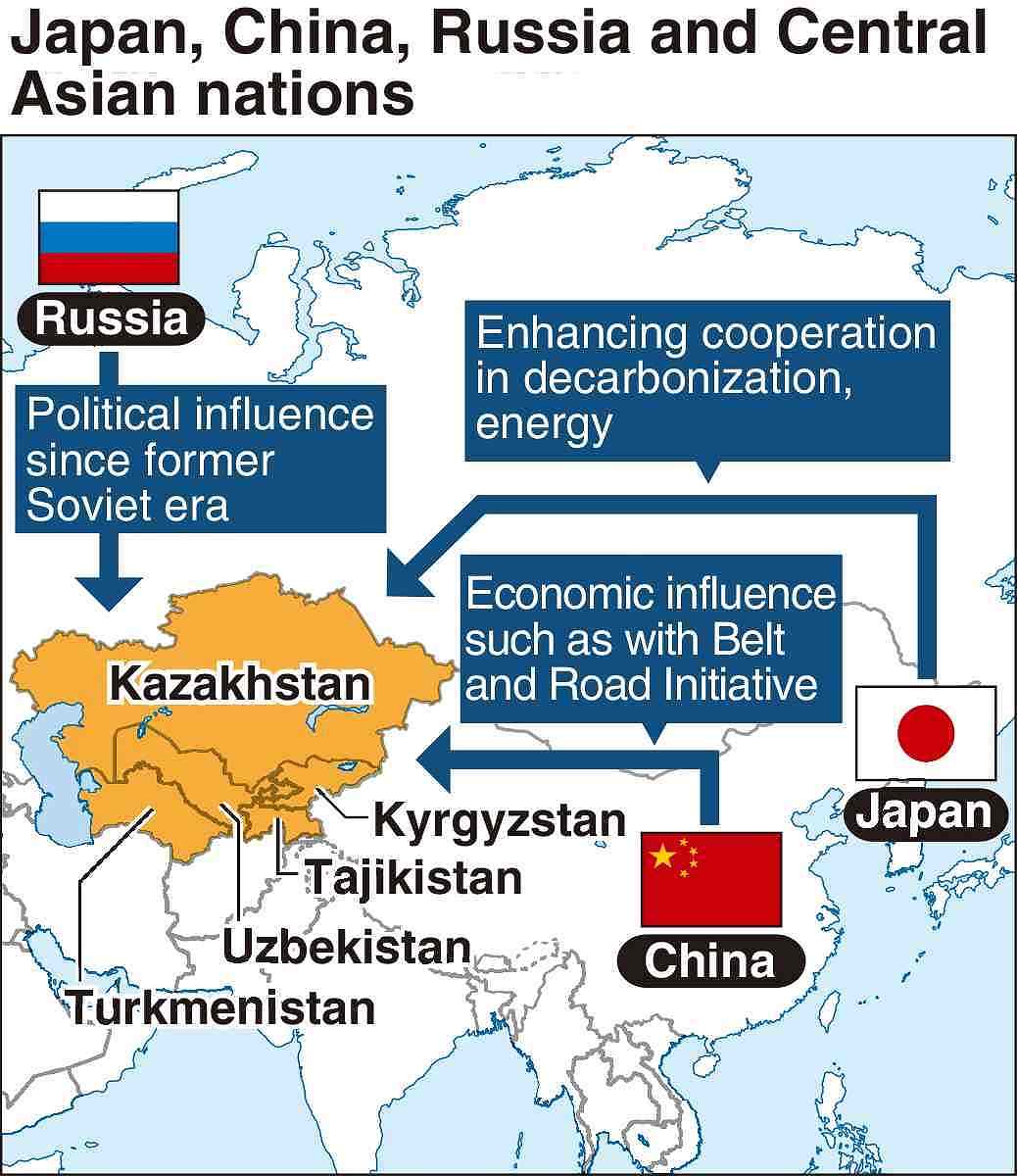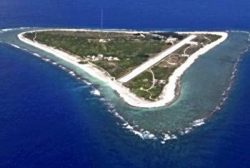Japan, Central Asian Nations Set to Form Decarbonization, Energy Dialogue Framework as Tokyo Looks to Offer Alternative to Beijing, Moscow

17:29 JST, September 23, 2023
Japan and the five Central Asian nations plan to strengthen cooperation in decarbonization and the energy sector, The Yomiuri Shimbun has learned. By creating a new framework for dialogue, the six nations will tackle such issues by implementing Japan’s environmental technology.
For Japan, the sources say, another aim is to offer an alternative to Russia and China, two neighbors of the Central Asian nations that have a strong influence in the region.
What is regarded as Central Asia consists of Kazakhstan, Kyrgyzstan, Tajikistan, Turkmenistan and Uzbekistan. All were part of the Soviet Union and link Europe and Asia.
They are rich in crude oil and natural gas as well as mineral resources such as copper and rare metals.
Ministerial-level meetings with the five nations are expected in Tokyo as early as Tuesday, with Yasutoshi Nishimura, Japan’s economy, trade and industry minister, scheduled to attend.
The ministers are expected to reach an agreement to accelerate efforts to achieve the goal of reducing greenhouse gas emissions to net zero in 2050 or later.
Final arrangements are being made to include in a joint statement the promotion of the Joint Crediting Mechanism (JCM) between Japan and each of the five Central Asian nations.
Under the JCM system, if the Japanese government and companies provide these countries with technology leading to their decarbonization, Japan will be able to count a part of those emissions reductions as part of its own.
Also likely to be agreed upon is the creation of projects for decarbonization by the Central Asian nations by using the technology of Japanese companies and loans from Japanese financial institutions.
Among the examples envisaged are the building of new power plants using renewable energy sources such as solar and wind, the introduction of equipment to effectively streamline operations at thermal power plants and the use of hydrogen and ammonia.
Russia sees these former Soviet bloc countries as within its sphere of influence, while China views them as an important area for its huge economic zone known as the Belt and Road Initiative.
In May, the China-Central Asia Summit Mechanism was launched, under which the six countries take turns hosting a summit every two years for the purpose of promoting exchanges among them.
Amid these circumstances, Japan aims to strengthen relations with the Central Asian nations through its excellent environmental technology in the hopes of differentiating its ties from those with China and Russia.
Japanese firms that withdrew from Russia after the Ukraine invasion are looking for business opportunities in Central Asia as the region has economic growth potential.
By deepening cooperation with the five Central Asian countries at the governmental level, Japan intends to help Japanese companies further enter and invest in the region.
Top Articles in Politics
-

Japan PM Takaichi’s Cabinet Resigns en Masse
-

Sanae Takaichi Elected Prime Minister of Japan; Keeps All Cabinet Appointees from Previous Term
-

Japan’s Govt to Submit Road Map for Growth Strategy in March, PM Takaichi to Announce in Upcoming Policy Speech
-

LDP Wins Landslide Victory, Secures Single-party Majority; Ruling Coalition with JIP Poised to Secure Over 300 seats (UPDATE 1)
-

LDP Wins Historic Landslide Victory
JN ACCESS RANKING
-

Producer Behind Pop Group XG Arrested for Cocaine Possession
-

Japan PM Takaichi’s Cabinet Resigns en Masse
-

Man Infected with Measles Reportedly Dined at Restaurant in Tokyo Station
-

Israeli Ambassador to Japan Speaks about Japan’s Role in the Reconstruction of Gaza
-

Videos Plagiarized, Reposted with False Subtitles Claiming ‘Ryukyu Belongs to China’; Anti-China False Information Also Posted in Japan



























